[section label=1. Introduction]
High Performance, Low Energy Consumption
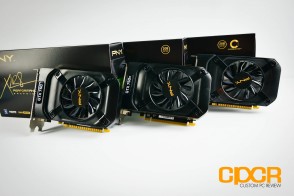 Recently, we came away very impressed with the MSI GeForce GTX 750 Gaming GPU, which was our first opportunity to check out a graphics card based off of Nvidia’s new Maxwell based GeForce GTX 750 series GPU. The GTX 750 series GPUs are Nvidia’s first GPUs to use Nvidia’s brand new, highly efficient SMM architecture to replace the older SMX architecture used on Nvidia’s previous generation Kepler based GPUs.
Recently, we came away very impressed with the MSI GeForce GTX 750 Gaming GPU, which was our first opportunity to check out a graphics card based off of Nvidia’s new Maxwell based GeForce GTX 750 series GPU. The GTX 750 series GPUs are Nvidia’s first GPUs to use Nvidia’s brand new, highly efficient SMM architecture to replace the older SMX architecture used on Nvidia’s previous generation Kepler based GPUs.
At launch, we unfortunately only got the opportunity to check out the GTX 750, which was the entry level GTX 750 series GPU. Alongside the GTX 750, Nvidia also launched the GTX 750 Ti, which is very similar to the GTX 750 with the exception that it had an extra SMM unit unlocked giving it access to 640 CUDA cores and 40 TU (Texture Units). The GTX 750 Ti also includes an additional 1GB of higher clocked GDDR5 which should theoretically give it a boost when gaming at higher resolutions.
Specifications
| GPU | GeForce GTX 650 | PNY GeForce GTX 750 | PNY GeForce GTX 750 Ti | PNY GeForce GTX 750 Ti OC |
|---|---|---|---|---|
| Codename | Kepler | Maxwell | Maxwell | Maxwell |
| Fabrication | 28nm | 28nm | 28nm | 28nm |
| Base Clock | 1058MHz | 1020 MHz | 1020 MHz | 1202 MHz |
| Boost Clock | N/A | 1085 MHz | 1085MHz | 1281 MHz |
| Architecture | SMX | SMM | SMM | SMM |
| CUDA Cores | 384 | 512 | 640 | 640 |
| Texture Units | 32 | 32 | 40 | 40 |
| ROPs | 16 | 16 | 16 | 16 |
| Memory Configuration | 1GB GDDR5 | 1GB GDDR5 | 2GB GDDR5 | 2GB GDDR5 |
| Memory Interface | 128-bit | 128-bit | 128-bit | 128-bit |
| Memory Frequency | 5.0 GHz | 5.0 GHz | 5.4 GHz | 6.0 GHz |
Since we never had a chance to check out the GTX 750 Ti, we were thrilled when PNY offered us an opportunity to review their complete GeForce GTX 750 series lineup which includes the PNY GeForce GTX 750, GTX 750 Ti and the GTX 750 Ti OC. The PNY GeForce GTX 750 and the GTX 750 Ti are pretty much reference spec so reference PCB and reference clock/memory speeds, while the GTX 750 Ti OC edition will come aggressively pre-overclocked out of the box.
Let’s take a closer look at PNY’s GeForce GTX 750 series offerings.
[section label=2. A Closer Look (Exterior)]
A Closer Look at the PNY GeForce GTX 750, 750 Ti, 750 Ti OC
Here’s a look at the PNY GeForce GTX 750, GTX 750 Ti, and GTX 750 Ti OC. The packaging between the three graphics cards are pretty much identical with the exception of different labels for the different cards.
Accessories between the three cards are identical. Each card gets some documentation, a driver disk, DVI to VGA adapter, and a mini-HDMI to HDMI adapter.
PNY’s design for the GeForce GTX 750, GTX 750 Ti and GTX 750 Ti OC are pretty much the same, very similar to the reference design with a PNY branded cooler.
Unlike the previously reviewed MSI GeForce GTX 750 Gaming with its excessively monstrous cooler, the PNY GeForce GTX 750/750 Ti/750 Ti OC cards are appropriately sized, measuring in at just under 7″ in length. These cards should easily fit into any case with room for a double slot card.
Video outputs on the PNY GeForce GTX 750/GTX 750 Ti/GTX 750 Ti OC include 2x DVI and mini-HDMI. As it’s closely based off the reference design, none of the cards include external power connectors.
[section label=3. A Closer Look (Interior)]
A Closer Look at the PNY GeForce GTX 750, 750 Ti, 750 Ti OC
Removing the cooler, we can take a closer look at the cooler assembly, PCB design and components used onboard.
The cooler is a custom PNY cooler that’s a fairly basic which includes a heatsink assembly and a fan. The cooler also includes a shroud to redirect heat out the back of the card.
Comparing the components on the PNY GeForce GTX 750, GTX 750 Ti and GTX 750 Ti OC, everything is almost the same with the exception of the GPU and the memory. Whereas the GTX 750 uses the GTX 750 GPU paired with 1GB of SK Hynix GDDR5, the GTX 750 Ti and GTX 750 Ti OC uses the GTX 750 Ti GPU paired with 2GB of Samsung GDDR5.
GTX 750
Here’s a look at the GTX 750 GPU (Model #GM107-300-A2). The GTX 750 is paired with 1024MB of Hynix H5GC2H24BFR-T2C GDDR5 memory on a 128-bit memory interface.
GTX 750 Ti / GTX 750 Ti OC
Here’s a look at the GTX 750 Ti GPU (Model #GM107-400-A2). The GTX 750 Ti is paired with 2048MB of Samsung K4G41325FC-HC03 GDDR5 memory running on a 128-bit memory interface.
Here’s a look at some of the VRM ICs on the graphics cards.
[section label=4. Testing Setup]
PNY GeForce GTX 750, 750 Ti, 750 Ti OC Performance
Testing Setup
Ivy Bridge Test Bench
| CPU | Intel Core i5 3570K |
|---|---|
| Motherboard | Gigabyte Z77X-UD3H |
| Memory | Kingston HyperX Genesis 16GB DDR3 2133MHz |
| Graphics | N/A |
| Boot Drive | OCZ Vertex 4 128GB SSD |
| Storage Drive | Western Digital Caviar Green 3TB |
| Power Supply | Corsair HX650 |
| Case | HSPC High Speed Tech Station |
| Optical Drive | ASUS OEM DVD Drive |
| Operating System | Windows 7 Ultimate x64 SP1 |
Special thanks to Gigabyte, Kingston, OCZ Technology and HSPC for sponsoring our test bench!
Initial Boot
PNY GeForce GTX 750
PNY GeForce GTX 750 Ti
PNY GeForce GTX 750 Ti OC
[section label=5. 3D Mark]
PNY GeForce GTX 750, 750 Ti, 750 Ti OC Performance
3D Mark
The new 3D Mark, now referred to as just 3D Mark, is Futuremark’s latest update to the popular 3D Mark series of benchmarks. The updated 3D Mark now includes multiple benchmarks for cross platform support as well as updated graphics to push the latest graphics cards to their limits.
[section label=6. 3D Mark 11]
PNY GeForce GTX 750, 750 Ti, 750 Ti OC Performance
3D Mark 11
3D Mark 11 is an extremely popular benchmark designed by Futuremark for the sole purpose of stress testing a system’s graphics performance. Trusted by hardware enthusiasts and gamers world wide, 3D Mark 11 uses the latest features of DX11 to stress test graphics performance with consistent loads which simulate in game performance.
[section label=7. Unigine Heaven]
PNY GeForce GTX 750, 750 Ti, 750 Ti OC Performance
Unigine Heaven v4.0
Unigine Heaven is another DX11 benchmark that stresses the graphical processing capabilities of the GPU using the advanced UNIGINE engine.
[section label=8. Shogun 2: Total War]
PNY GeForce GTX 750, 750 Ti, 750 Ti OC Performance
Shogun 2: Total War
Shogun 2: Total War is the most recent installment of the long running Total War series. Capable of using DX11’s features, it’s the perfect benchmark to test for the gaming performance. For our testing today, we’ll be using the Shogun 2: Total War benchmark utility.
[section label=9. Crysis 2]
PNY GeForce GTX 750, 750 Ti, 750 Ti OC Performance
Crysis 2
As the successor to Crysis, which was hailed as the most graphically intensive game of all time when it was released in late 2007, Crysis 2 is less graphically demanding than its predecessor, but still one of the most graphically challenging games of all time. You simply can’t take a step in Crysis 2 without stepping into some intense tessellation. Combined with rich lighting, insane physics, and oodles of post processing, Crysis 2 requires a ton of graphics muscle to run.
Today, we’ll be benchmarking Crysis 2 in the map “Central Park” with the Adrenaline Crysis 2 Benchmark Tool.
[section label=10. Metro 2033]
PNY GeForce GTX 750, 750 Ti, 750 Ti OC Performance
Metro 2033
Similar to Crysis 2, Metro 2033 is extremely tessellation intensive and fills the ranks as one of the most graphically intense games of all time.
Today, we’ll be benchmarking Metro 2033’s Frontline map using the Metro 2033’s included Benchmark Utility.
[section label=11. Sleeping Dogs]
PNY GeForce GTX 750, 750 Ti, 750 Ti OC Performance
Sleeping Dogs
Released in 2012, Sleeping Dogs is an open world action-adventure title based on the infamous Hong Kong triads. With an open world environment, fast paced action and excellent graphics, Sleeping Dogs makes for a perfect test of graphics card capability. For our benchmarking today, we’ll be using Adrenaline’s Action Benchmark Tool.
[section label=12. Hitman: Absolution]
PNY GeForce GTX 750, 750 Ti, 750 Ti OC Performance
Hitman: Absolution
Hitman: Absolution is a action adventure game released in late 2012 which focuses on the hitman, Agent 47, and his assassination missions. After a 6 year hiatus, the Hitman series is back in full force with updated graphics based off the developer, Square Enix/IO Interactive’s Glacier 2 engine. For our benchmarking today, we’ll be using Adrenaline’s Action Benchmark Tool.
[section label=13. Battlefield 4]
PNY GeForce GTX 750, 750 Ti, 750 Ti OC Performance
Battlefield 4
Only a year after the initial release of Battlefield 3, the team at DICE went back to the drawing board to introduce their latest and greatest modern combat shooter, Battlefield 4. Based off DICE’s all-new Frostbite 3 engine, Battlefield 4 brings a new level of realism to the world of PC and console gaming with an unparalleled level of visual immersion, realistic character animations, and physics driven dynamic environments.
For our benchmarking, we’ll be doing a benchmark on a 60 second run of the game at the beginning of the Tashgar mission. While this scene doesn’t involve any firefights, it’s a very graphics intensive scene that involves a fast moving drive through the hills of Tashgar, which makes heavy use of the Frostbite 3’s motion blurring, depth of field, particle effects, and real time lighting engine.
[section label=14. Power Consumption and Temperatures]
PNY GeForce GTX 750, 750 Ti, 750 Ti OC Performance
Power Consumption
For power consumption testing, we’ll be measuring full system power while idle along with full system power with the graphics card running at full load using Furmark. All power consumption measurements will be measured with the Extech 380801 Power Analyzer.
Temperature Testing
For temperature testing, we’ll be measuring both graphics card temperatures when the graphics card is idle for 5 minutes after a cold boot. Load temperatures are taken after a full 30 minute burn using Furmark.
While some of you aren’t huge fans of Furmark as it creates an ultra heavy, unrealistic load on the graphics card, we feel like it’s a more useful tool as it differentiates between graphics cards that have extremely well designed coolers and ones that simply have cooling solutions that simply pass the test, if you will. Most games these days generally don’t create enough of a load/heat to even exceed temperatures where the fans would spin up on most custom coolers so it’s difficult to adequately rank cooling solutions without using a tool like Furmark.
[section label=15. Overclocking]
PNY GeForce GTX 750, 750 Ti, 750 Ti OC Overclocking
As PNY doesn’t include any additional overclocking software, we used MSI’s Afterburner utility to overclock the graphics cards reviewed today.
PNY GeForce GTX 750
The PNY GeForce GTX 750 is capable of the largest memory overclocking gains of any of the PNY GeForce GTX 750 series GPUs, achieving a maximum overclock of 1298MHz core and 1603MHz memory (6.4GHz effective) from stock clocks of 1085MHz core and 1253MHz memory (5GHz effective). The SK Hynix GDDR5 is definitely a stronger overclocker than the Samsung GDDR5 used on the GTX 750 Ti.
PNY GeForce GTX 750 Ti
The PNY GeForce GTX 750 Ti overclocked significantly without issue as well, achieving a maximum stable overclock of 1298MHz core and 1550MHz memory (6.2GHz effective) from stock clocks of 1085MHz core and 1350MHz memory (5.4GHz effective).
PNY GeForce GTX 750 Ti OC
Since PNY already overclocks their GeForce GTX 750 Ti OC by quite a bit, we weren’t able to squeeze too much more out of the card, but we were able to achieve a respectable 1398MHz core and 1552MHz memory (6.2GHz effective) from the stock 1281MHz core and 1502MHz memory (6GHz effective).
3D Mark Performance – Fire Strike
With our huge overclocks on the GTX 750 and GTX 750 Ti, we were able to get ~12% increase in performance in the 3D Mark Fire Strike benchmark. With the already overclocked GTX 750 Ti OC, additional overclocking gains were far less with only a 1% increase in performance.
Power Consumption
The Maxwell architecture that the GTX 750 series is built on is incredibly efficient with the entire lineup of cards tested today coming in at 144w or under at load. Interestingly enough, the GTX 750 Ti OC card drew less power at load at stock, which could indicate that the specific GTX 750 Ti GPUs used on the OC units are more efficient than the non-OC units. Of course, this is not at all definitive as we only have a sample size of one.
Temperatures
Because of Maxwell’s efficiency, the entire GTX 750 series lineup runs incredibly cool, never breaking 59°C under load. Interestingly, the GTX 750 seems to run a bit warmer than the GTX 750 Ti and the GTX 750 Ti OC chips, but even 59°C is well within the safe zone.
[section label=16. Scrypt Mining]
PNY GeForce GTX 750, 750 Ti, 750 Ti OC Scrypt Mining (Bitcoin, Litecoin, Dogecoin, etc)
Like it or not, GPU mining for cryptocurrencies is all the rage these days so we’ll also be doing a bit of scrypt mining testing as well. For our testing today, we’ll be using cudaMiner which is a great scrypt mining application designed for Nvidia GPUs.
PNY GeForce GTX 750
PNY GeForce GTX 750 Ti
PNY GeForce GTX 750 Ti OC
Performance Analysis
Given Maxwell’s architectural efficiency, the GTX 750 series GPUs are probably Nvidia’s most efficient scrypt mining GPUs. With each GPU overclocked, the GTX 750 was able to achieve 222 khash/s, the GTX 750 Ti was able to achieve 270 khash/s and the GTX 750 Ti was able to achieve 291 khash/s.
[section label=17. Conclusion]
PNY GeForce GTX 750, 750 Ti, 750 Ti OC Conclusions
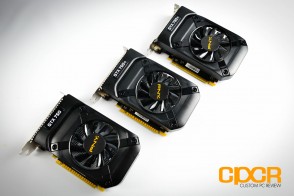 PNY isn’t really known for producing the craziest custom coolers or packing in the most overclocking friendly features into their graphics cards, but I think with something like the GTX 750 and the 750 Ti, they’re right on the mark. After previously having the opportunity to check out the MSI GeForce GTX 750 Gaming with its unnecessarily large PCB and massive cooling solution, I think PNY’s implementation is the better option as the smaller size of the card is a lot more versatile for the many users planning to install the graphics cards into smaller form factor PCs or pre-built PCs that don’t necessarily have external PCIe connectors and are severely limited in space.
PNY isn’t really known for producing the craziest custom coolers or packing in the most overclocking friendly features into their graphics cards, but I think with something like the GTX 750 and the 750 Ti, they’re right on the mark. After previously having the opportunity to check out the MSI GeForce GTX 750 Gaming with its unnecessarily large PCB and massive cooling solution, I think PNY’s implementation is the better option as the smaller size of the card is a lot more versatile for the many users planning to install the graphics cards into smaller form factor PCs or pre-built PCs that don’t necessarily have external PCIe connectors and are severely limited in space.
Performance-wise, we’ve definitely come away impressed with all the graphics cards tested today. Despite all the cards being limited by the PCIe slot’s 75w power envelope, the GTX 750 and the GTX 750 Ti is capable of playing most of the latest games at medium/high settings at 1920×1200 – something we’ve only dreamed about a couple years ago. Obviously those wanting to turn up the settings a bit, or are more interested in playing more graphically demanding games should go with the GTX 750 Ti whereas those who simply want to be able to run games at 1080p with medium quality settings can go with the GTX 750.
As for overclocking performance, there’s definitely a lot of room here with both the PNY GeForce GTX 750 and GTX 750 Ti. With a bit of tweaking, we were easily able to squeeze around a good 12% increase in performance in both the GTX 750 and the GTX 750 Ti. The PNY GeForce GTX 750 Ti OC on the other hand doesn’t have too much overclocking headroom given the fact that PNY has already aggressively overclocked the card by about 18% core and 11% memory. While this may be disappointing for some users, I think it actually gives a lot of value to those who aren’t comfortable overclocking their graphics cards as PNY’s GTX 750 Ti OC card is really pushed to the limits rather than a 2% higher clocked card with an additional $10 bump in the price by it being “overclocked”.
Currently, street prices on the PNY GeForce GTX 750, GTX 750 Ti and GTX 750 Ti OC are $124.99, $149.99, and $159.99 respectively, which is pretty much MSRP for GTX 750 series graphics cards. While PNY’s GTX 750 series graphics cards don’t necessarily include amazing custom features and board designs, they do offer a limited lifetime warranty with their cards with registration, which is not always something you’d find from most GPU vendors. PNY’s background with most of their product lines has always been reliability rather than extreme overclocking as much of their business is in the OEM and professional markets.
Overall, the PNY GeForce GTX 750, GTX 750 Ti and GTX 750 Ti OC are fantastic reference based designs that fit very well into the market segments that they cover. Those with older systems that don’t have access to external PCIe power, or those looking to fit a graphics card into a smaller form factor system should definitely keep an eye out for PNY’s selection of GTX 750 series based graphics cards.
Sample provided by: PNY
Available at: Amazon

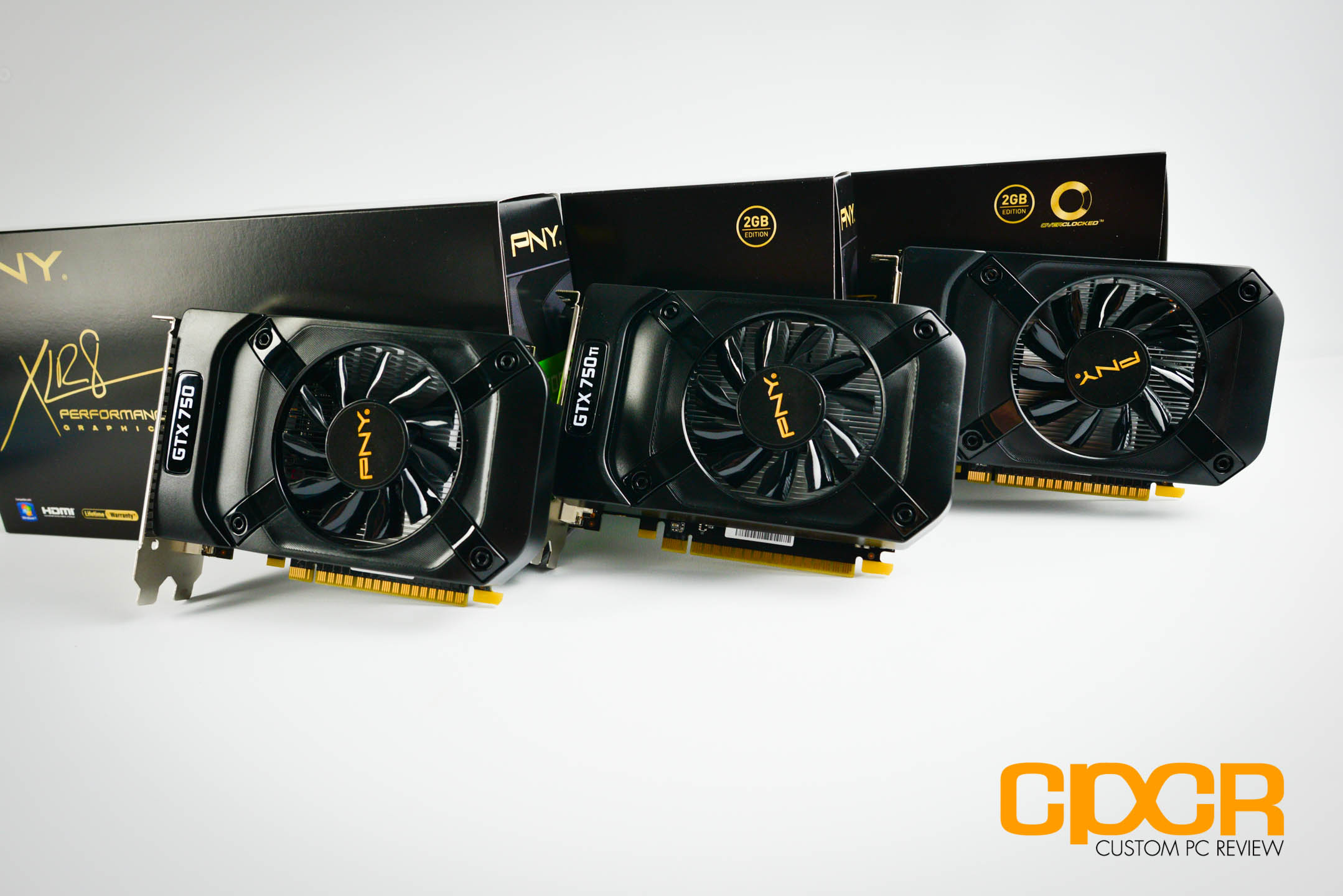
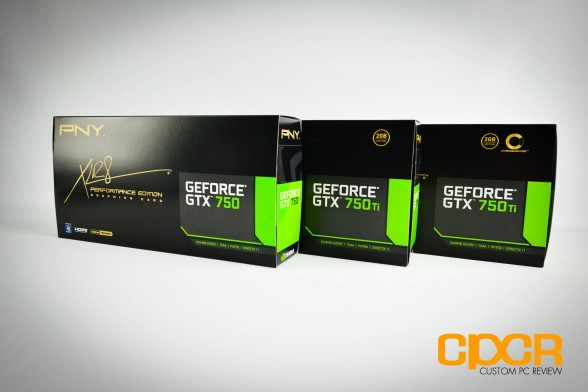
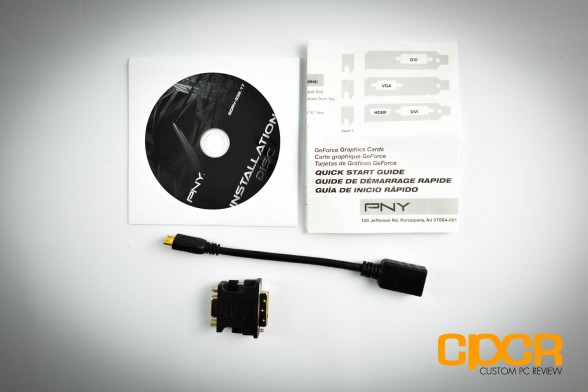
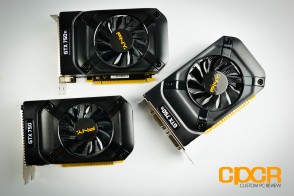
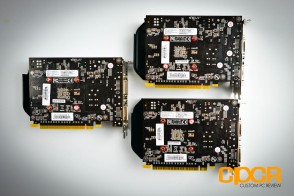
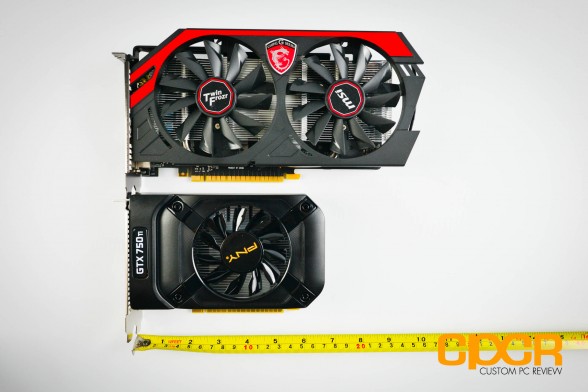
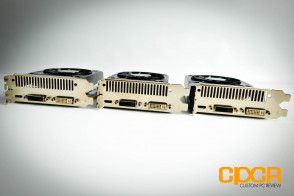
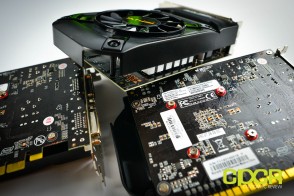
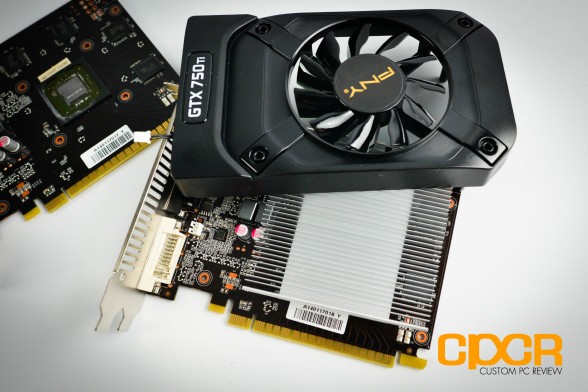
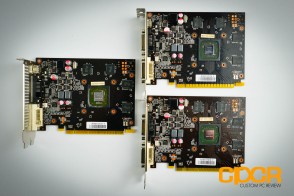
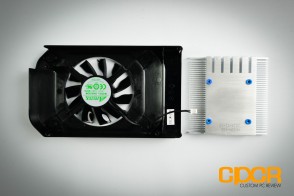
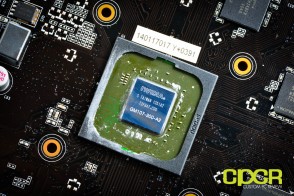
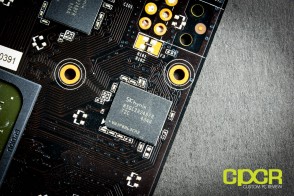
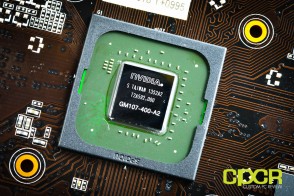
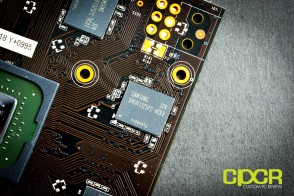
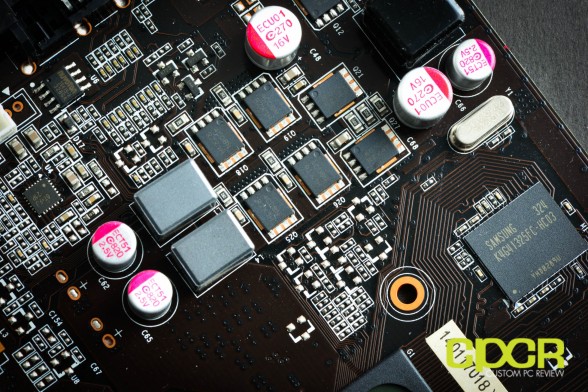
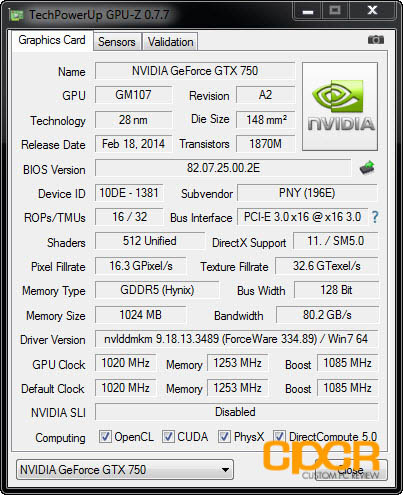
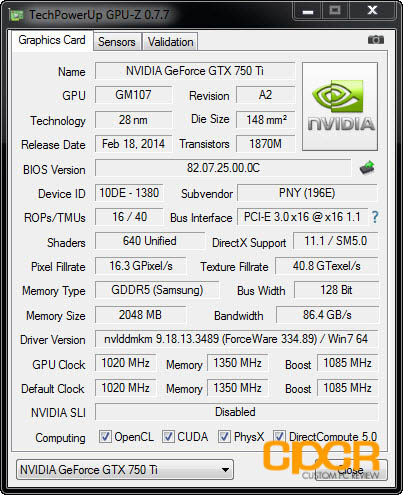
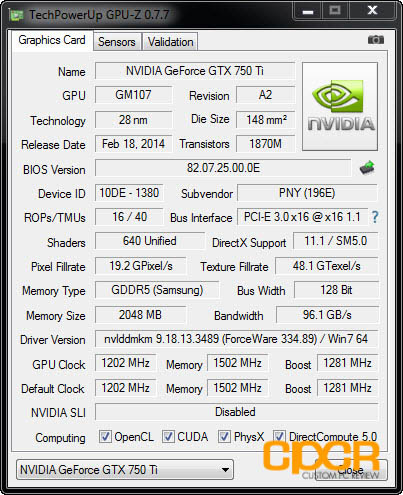
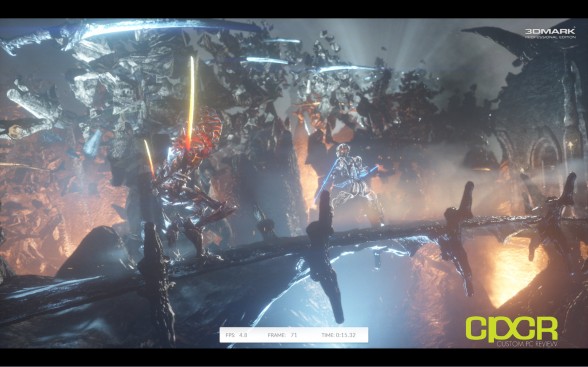
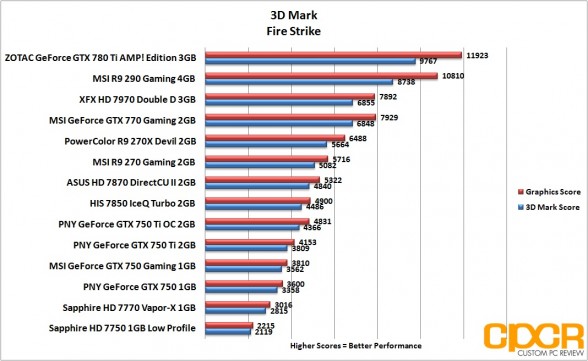
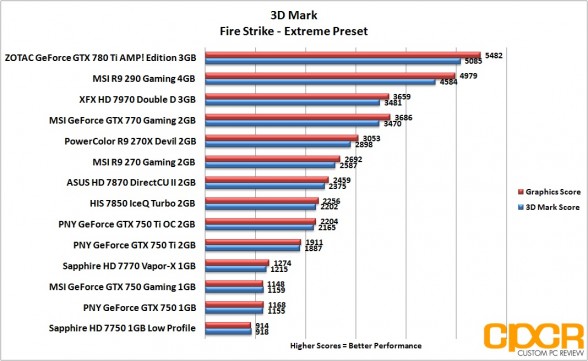

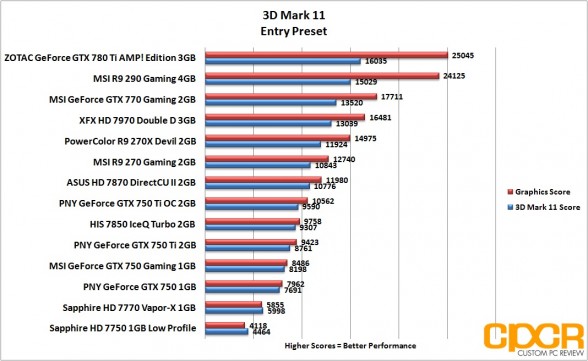
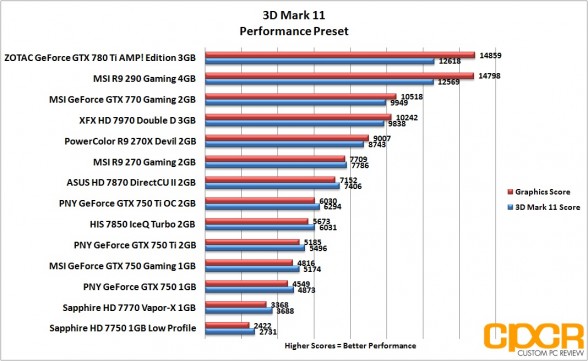
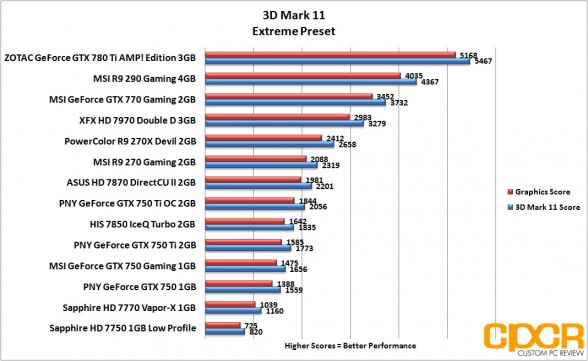

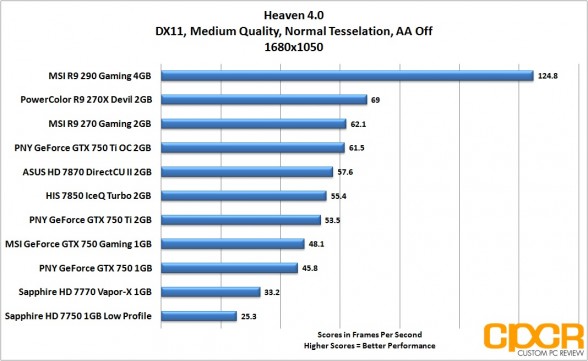
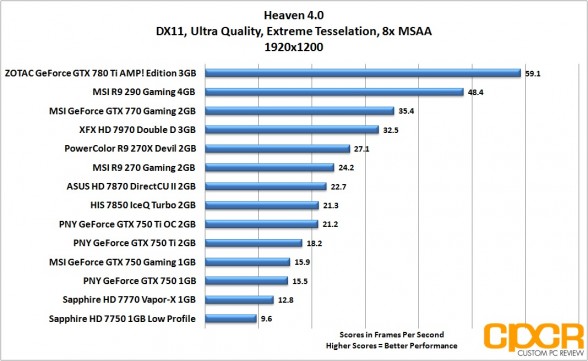
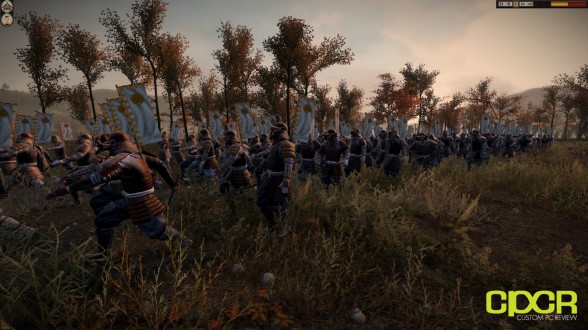
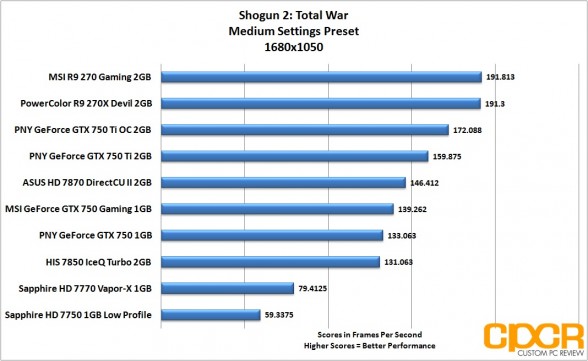
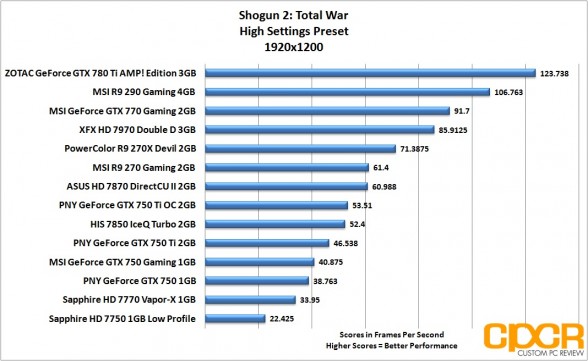

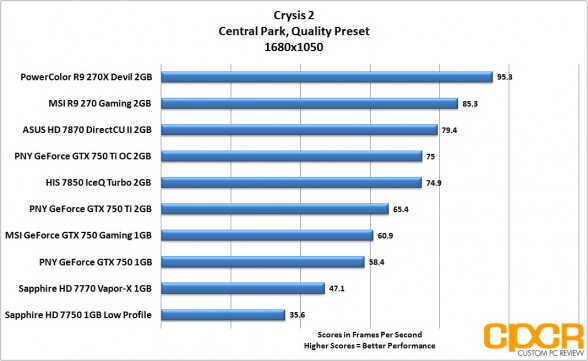
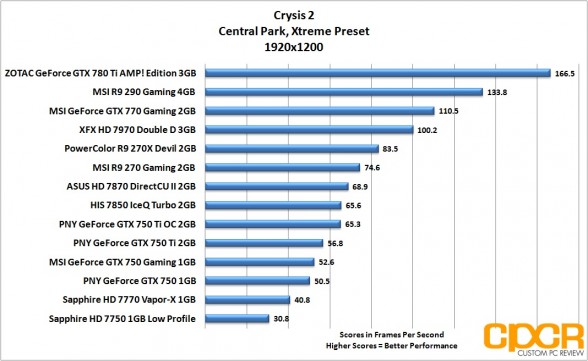
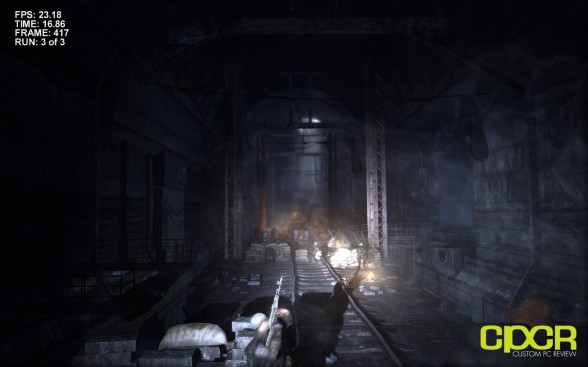
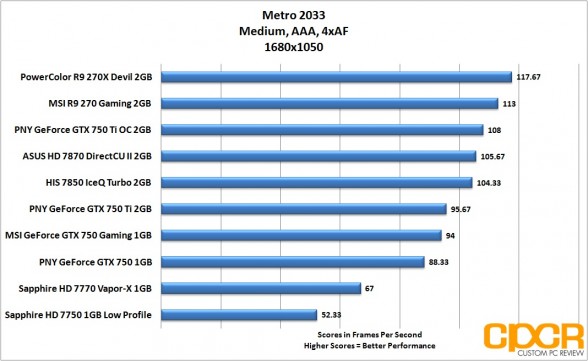
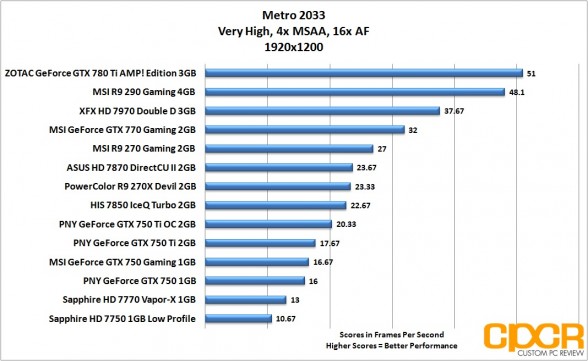

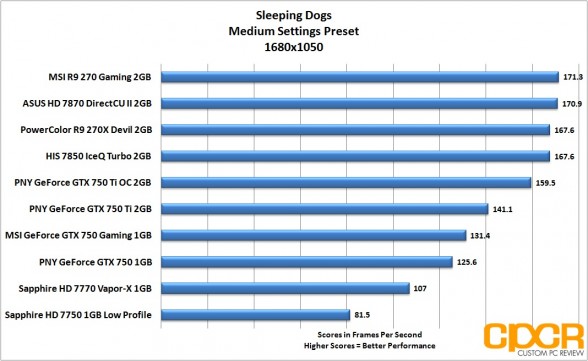
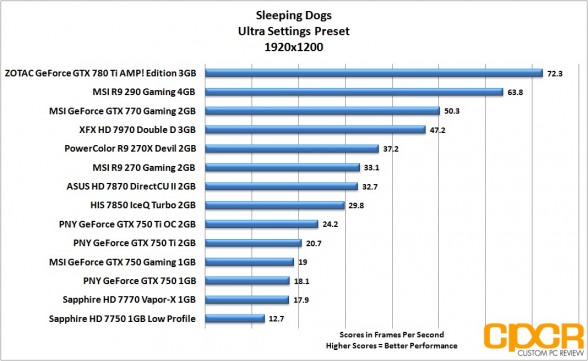

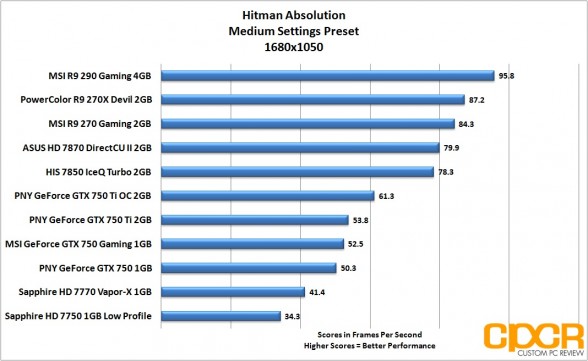
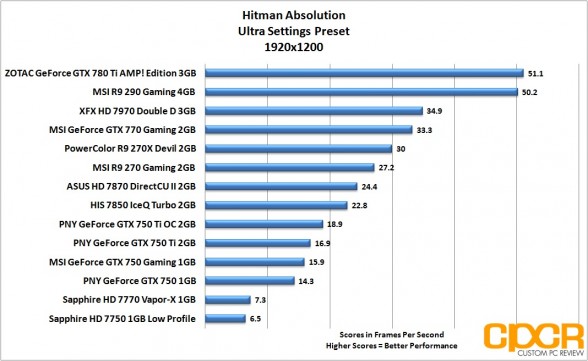

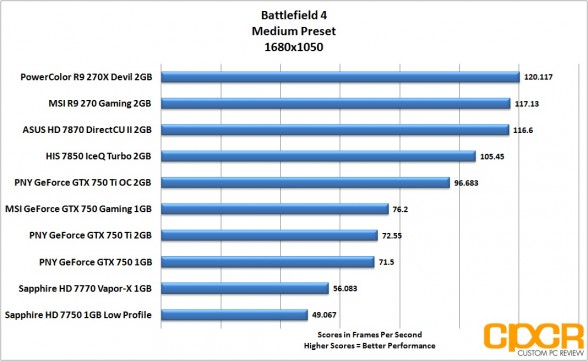
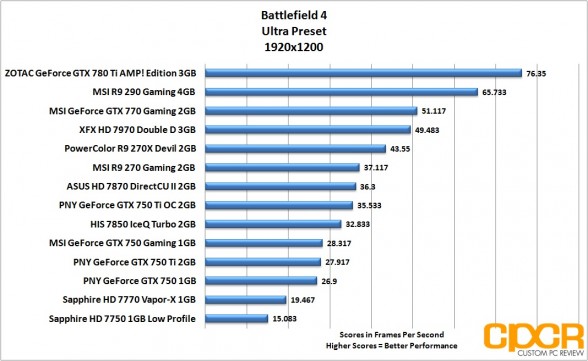
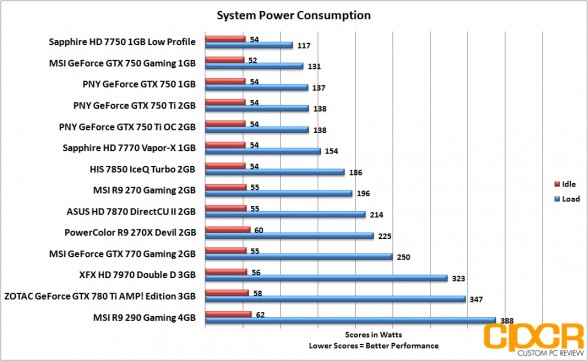
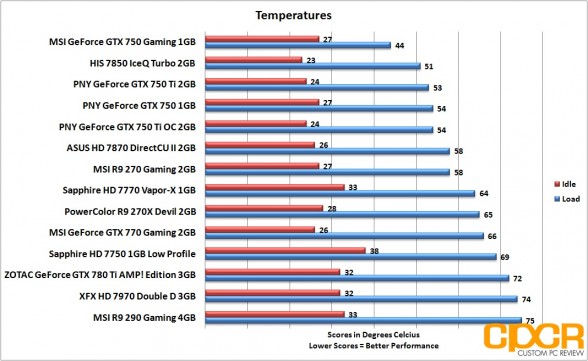
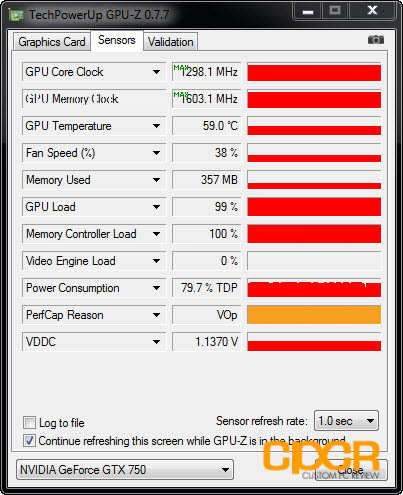
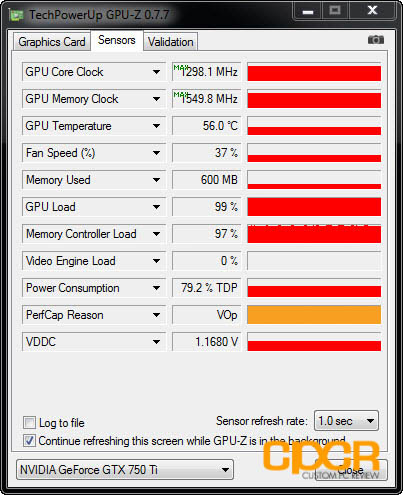
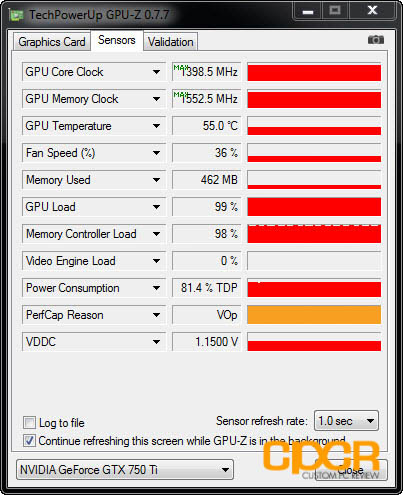
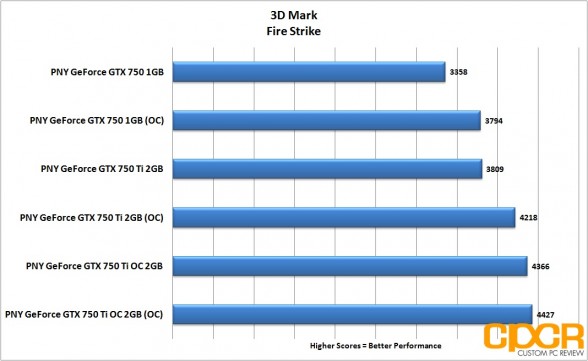
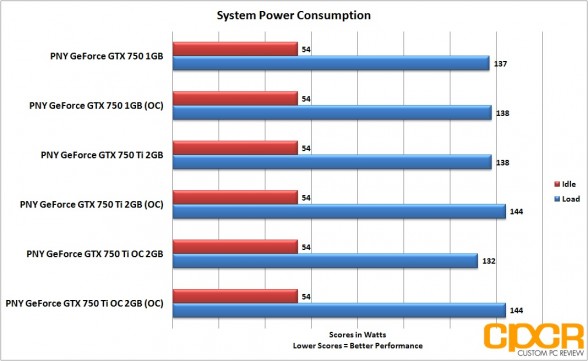
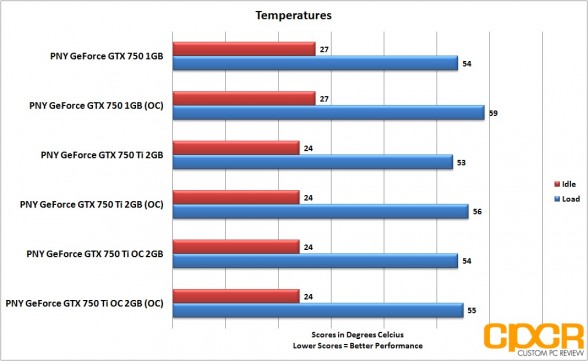
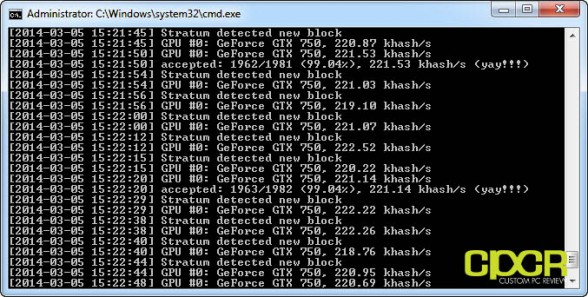
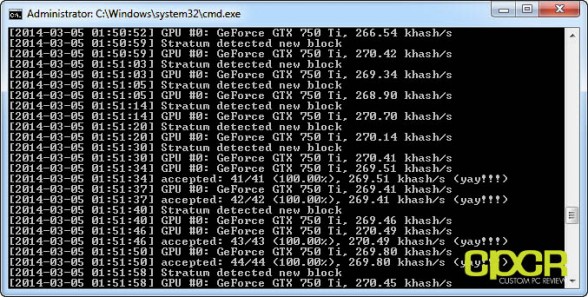
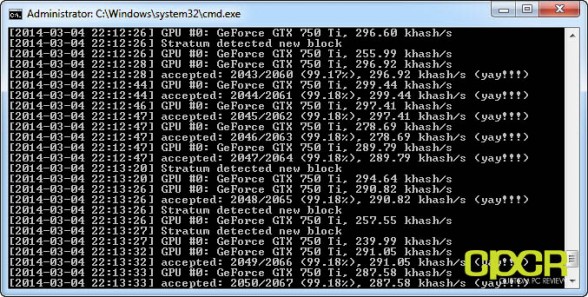

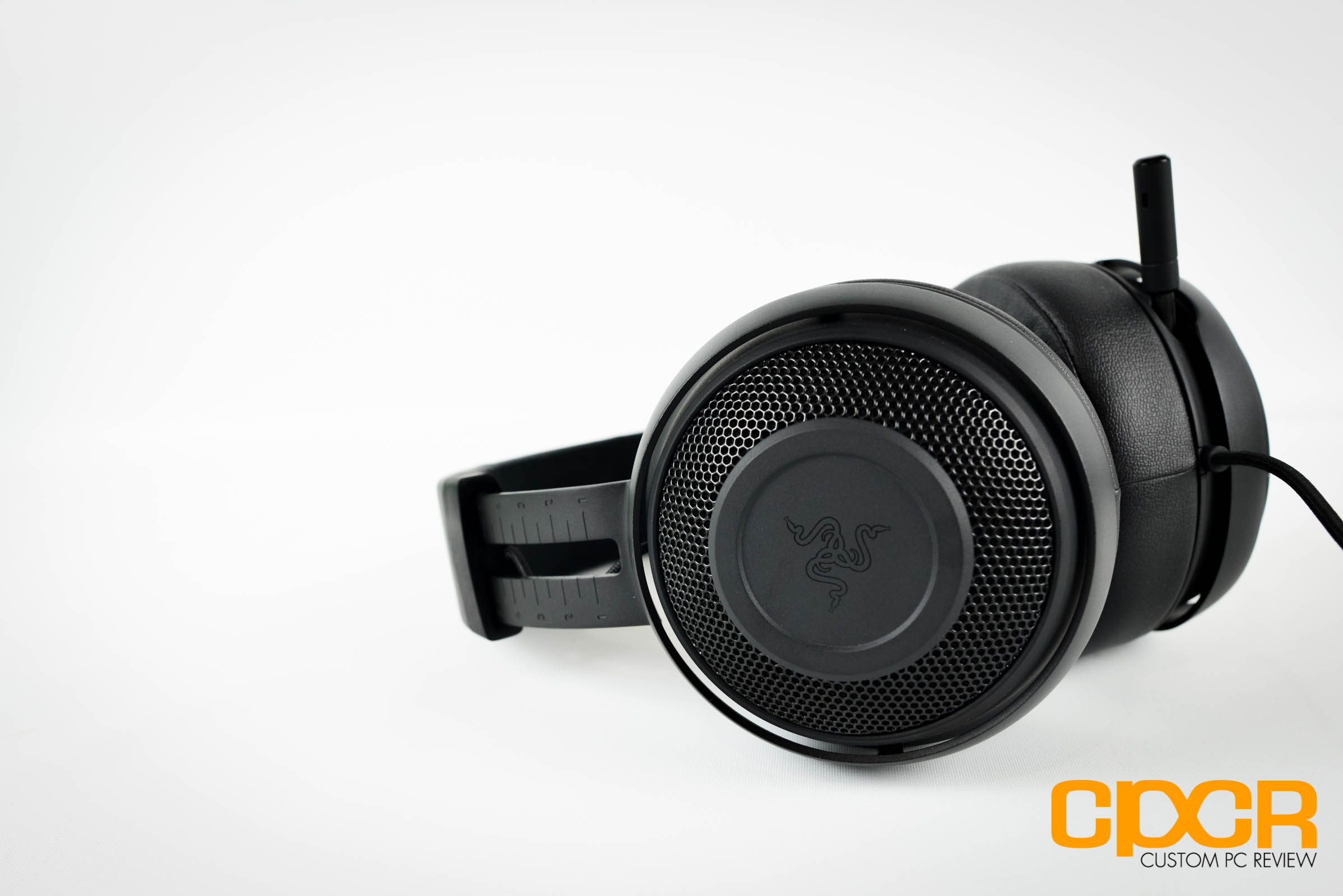
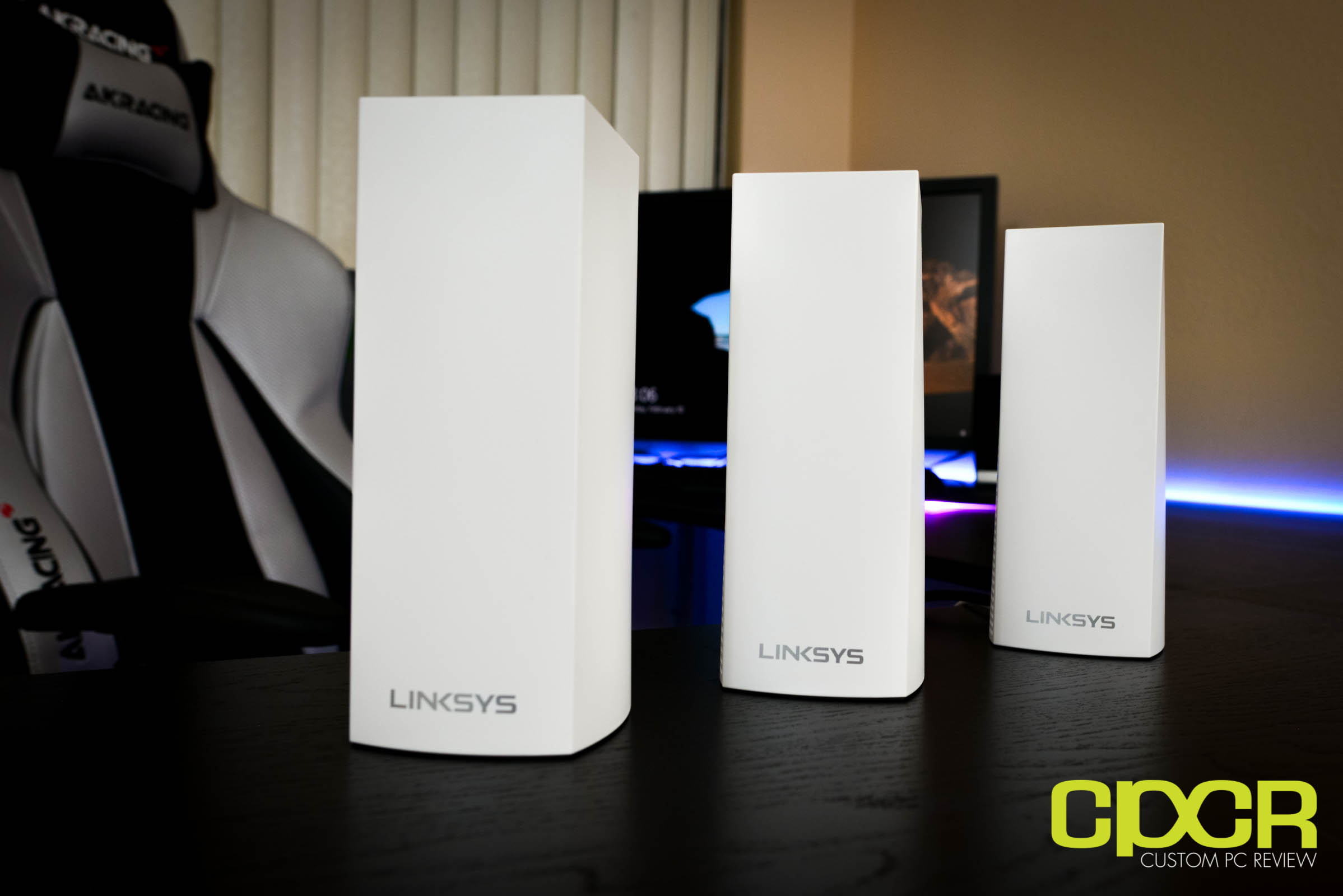
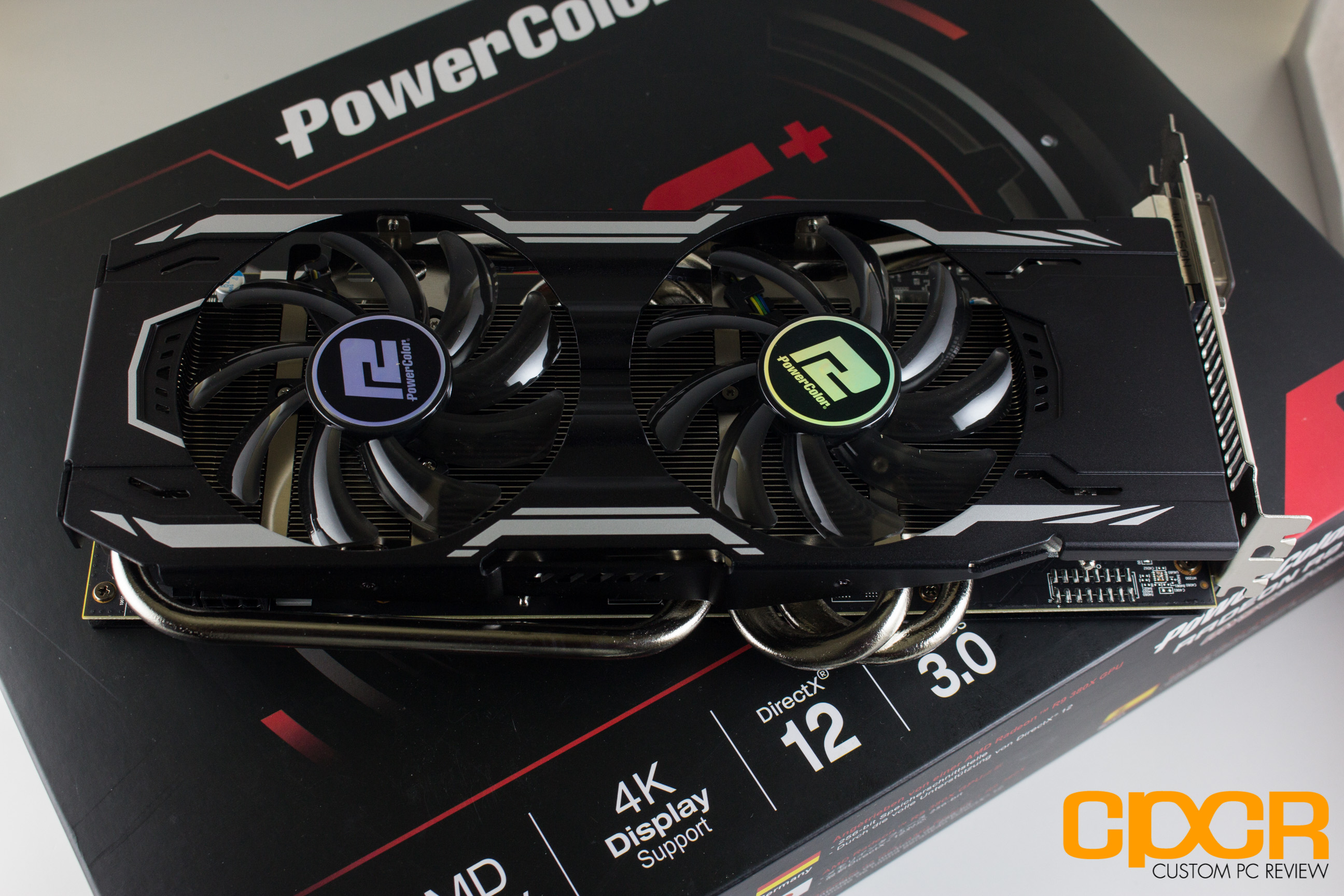
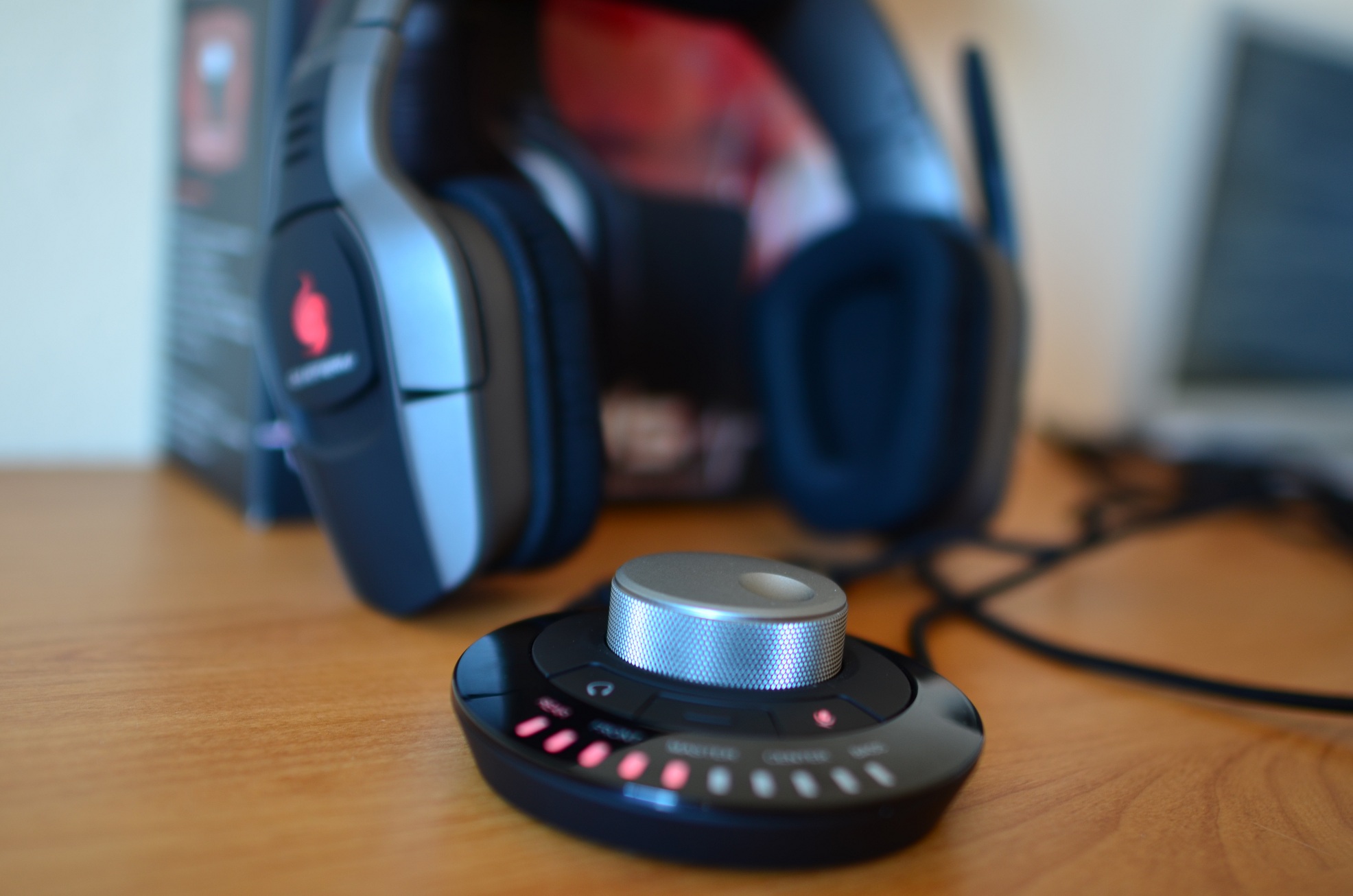
I have 5 of these running and they are insane, cool, quiet and very efficient low wattage.
Beware, many reviews from customers having bad experience with PNY warranty. Apparently “lifetime” is a lie, a play on words. For example, if they stop producing that card, their warranty is null and void, they expect you to pay shipping both ways and other catches. You could buy a video card with a “lifetime warranty” one day, then have that “life time” be over the literal next day because they no longer make that specific card.
Also read that their customer support sucks badly, hard to talk to, and may just ignore you.